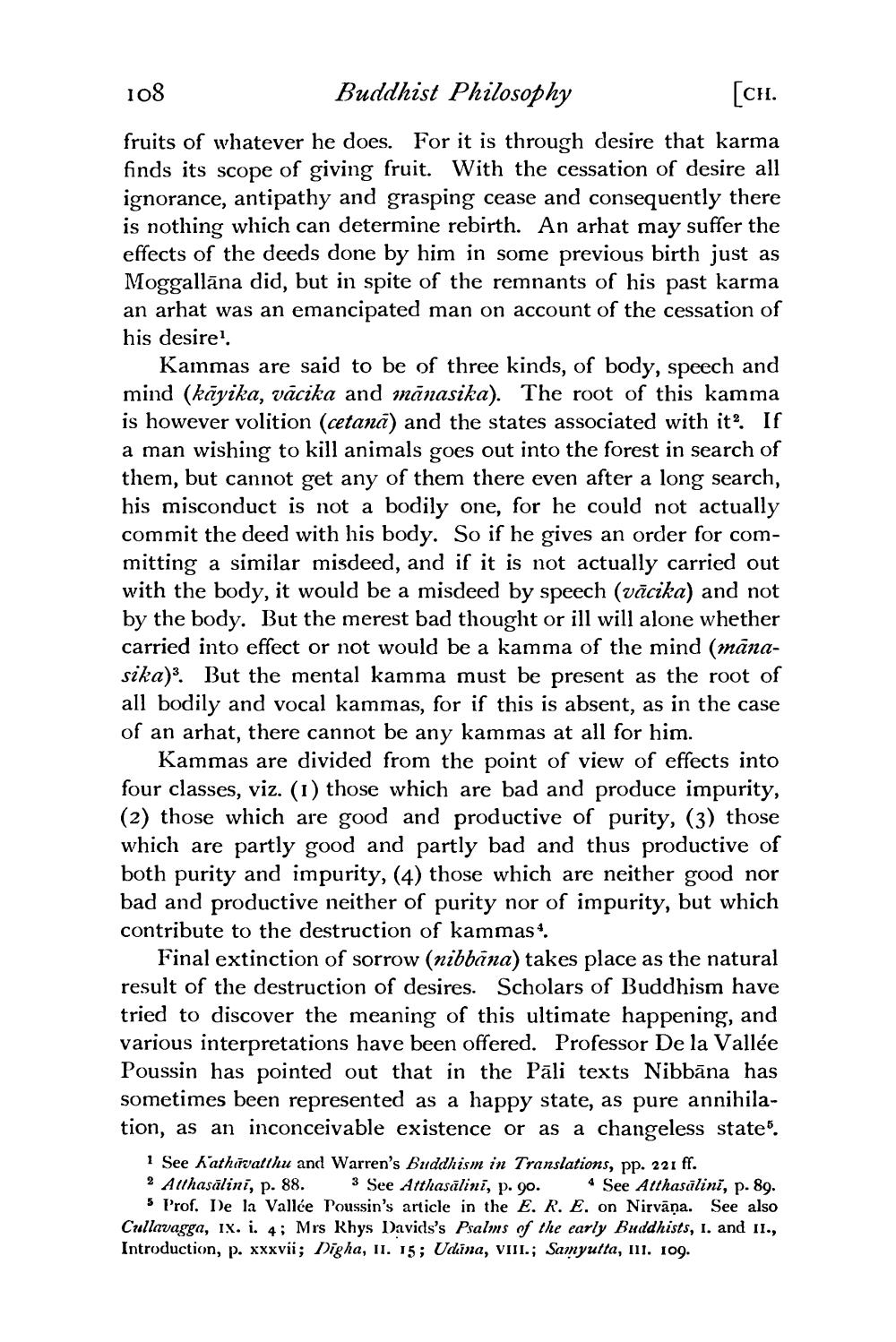________________
108
Buddhist Philosophy
[CH.
fruits of whatever he does. For it is through desire that karma finds its scope of giving fruit. With the cessation of desire all ignorance, antipathy and grasping cease and consequently there is nothing which can determine rebirth. An arhat may suffer the effects of the deeds done by him in some previous birth just as Moggallāna did, but in spite of the remnants of his past karma an arhat was an emancipated man on account of the cessation of his desire!
Kammas are said to be of three kinds, of body, speech and mind (kāyika, vācika and manasika). The root of this kamma is however volition (cetana) and the states associated with it. If a man wishing to kill animals goes out into the forest in search of them, but cannot get any of them there even after a long search, his misconduct is not a bodily one, for he could not actually commit the deed with his body. So if he gives an order for committing a similar misdeed, and if it is not actually carried out with the body, it would be a misdeed by speech (vācika) and not by the body. But the merest bad thought or ill will alone whether carried into effect or not would be a kamma of the mind (mānasika) But the mental kamma must be present as the root of all bodily and vocal kammas, for if this is absent, as in the case of an arhat, there cannot be any kammas at all for him.
Kammas are divided from the point of view of effects into four classes, viz. (1) those which are bad and produce impurity, (2) those which are good and productive of purity, (3) those which are partly good and partly bad and thus productive of both purity and impurity, (4) those which are neither good nor bad and productive neither of purity nor of impurity, but which contribute to the destruction of kammas“.
Final extinction of sorrow (nibbana) takes place as the natural result of the destruction of desires. Scholars of Buddhism have tried to discover the meaning of this ultimate happening, and various interpretations have been offered. Professor De la Vallée Poussin has pointed out that in the Pāli texts Nibbāna has sometimes been represented as a happy state, as pure annihilation, as an inconceivable existence or as a changeless state.
1 See Kathivatthu and Warren's Buddhism in Translations, pp. 221 ff. 2 Althasalini, p. 88. 3 See Atthasālini, p. go. See Atthasūlini, p. 89.
5 Prof. De la Vallée Poussin's article in the E. R. E. on Nirvāņa. See also Cullavagga, ix. i. 4; Mrs Rhys Davids's Psalms of the early Buddhists, I. and 11., Introduction, p. xxxvii; Digha, 11. 15; Udina, viii.; Samyutta, 11. 109.




